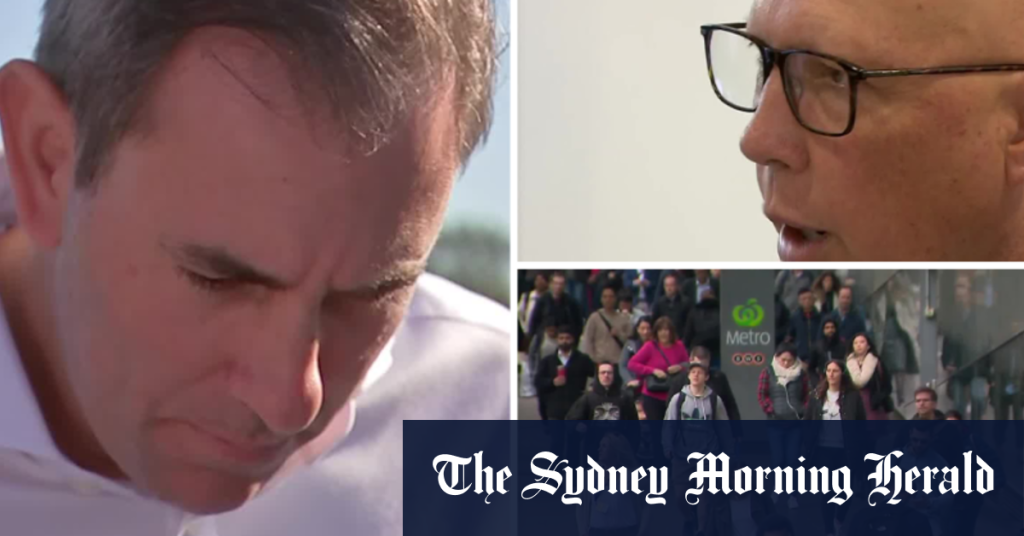After the recent federal budget, tensions between the government and opposition are running high, with a specific focus on Peter Dutton’s proposal to cut migration. The opposition has launched a fresh attack on Dutton’s plans, arguing that cutting migration levels could negatively impact the country’s economic growth and create a burden on key industries that rely on skilled immigrant workers. This dispute highlights a key ideological difference between the two parties on immigration policy and sets the stage for further debate on the issue in the coming months.
The government’s justification for the proposed cut in migration levels is likely rooted in concerns over infrastructure and population growth. With Australia’s population steadily increasing, there are growing concerns about the ability of existing infrastructure to support this growth. By reducing migration levels, the government may be aiming to alleviate some of the strain on public services and infrastructure while also addressing concerns about housing affordability and overcrowding in major cities. However, the opposition argues that cutting migration levels is a short-sighted solution that could have long-term negative consequences for the economy and the labor market.
The post-budget bickering between the government and opposition reflects deeper divides on economic and social policy issues. While the government stands by its decision to cut migration levels, the opposition is pushing back against these changes and advocating for a more open and inclusive approach to immigration. This clash of ideologies is not new in Australian politics, but it has been brought to the forefront once again in the wake of the budget announcement. As both parties dig in their heels, it remains to be seen how this debate will unfold in the coming weeks and months.
One of the key points of contention in the post-budget bickering is the impact that cutting migration levels could have on key industries that rely on skilled immigrant workers. Industries such as healthcare, education, and technology often rely on skilled migrant workers to fill labor shortages and drive innovation. By reducing migration levels, the government risks creating a shortage of skilled workers in these industries, which could hinder economic growth and innovation. The opposition’s criticism of Dutton’s plans to cut migration levels is rooted in concerns about the potential negative impact on these industries and the broader economy.
Another aspect of the post-budget bickering is the potential impact on Australia’s international reputation and relationships. Australia has long been known as a welcoming and inclusive country that values diversity and multiculturalism. However, the government’s plans to cut migration levels could send a different message to the international community, potentially damaging Australia’s reputation as a welcoming and inclusive nation. The opposition is likely to emphasize the importance of maintaining Australia’s reputation as a diverse and inclusive society in order to attract talent and investment from around the world.
Overall, the post-budget bickering between the government and opposition highlights the complexities and challenges of immigration policy in Australia. While both parties have different perspectives on the issue, it is clear that finding a balance between managing population growth, supporting key industries, and maintaining Australia’s reputation on the global stage will be a difficult task. As the debate continues to unfold, it will be important for both parties to consider the long-term implications of their policy decisions and work towards finding common ground on this contentious issue.


